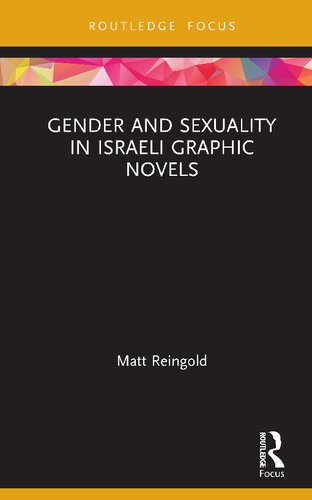

Most ebook files are in PDF format, so you can easily read them using various software such as Foxit Reader or directly on the Google Chrome browser.
Some ebook files are released by publishers in other formats such as .awz, .mobi, .epub, .fb2, etc. You may need to install specific software to read these formats on mobile/PC, such as Calibre.
Please read the tutorial at this link: https://ebookbell.com/faq
We offer FREE conversion to the popular formats you request; however, this may take some time. Therefore, right after payment, please email us, and we will try to provide the service as quickly as possible.
For some exceptional file formats or broken links (if any), please refrain from opening any disputes. Instead, email us first, and we will try to assist within a maximum of 6 hours.
EbookBell Team

4.1
30 reviewsThis book explores how Israeli graphic novelists present depictions of masculinity and femininity that differ from conventional portrayals of gender in Israeli society, rejecting the ways that hypermasculinity and docile femininity have come to be associated with men and women.
The book is the first to explore Israeli graphic novels through the lens of gender. It argues that breaking down existing gender delineations with regards to masculinity and femininity is a core feature of the Israeli graphic novel and comics tradition and that through their works, the authors and artists use their platforms to present a freer and looser conceptualization of gender for Israeli society. Undertaking close readings of Israeli graphic novels that have been published in English and/or Hebrew in the last 20 years, the book’s texts include Rutu Modan’s Exit Wounds and The Property, Ari Folman and David Polonsky’s Waltz with Bashir,Galit and Gilad Seliktar’s Farm 54, and Asaf Hanuka’s "The Realist".
This book is of interest to students and scholars in comics studies, Israel Studies, Jewish Studies, and Gender Studies.